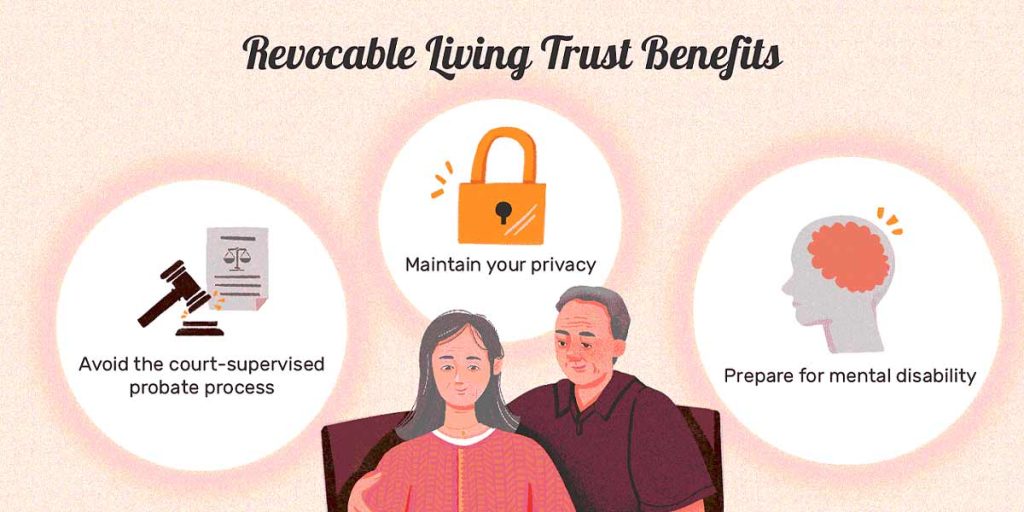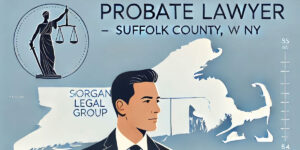The decision of a revocable trust vs.will boils down to your personal choices and what you aim to achieve through your estate planning.
Trusts can be made out to do anything you wish to do with your assets and are divided into 2 types-revocable trusts and irrevocable trusts. Revocable trusts are those that can be revoked or “undone” if you happen to have change in plans. There is a choice of reversing your decision at a future point of time with a revocable trust.
With an irrevocable trust, the ownership of your assets is completely handed over to the trust and the designated trustee permanently. You completely lock in your decision with this trust with no scope for change in the future.
You can draw your revocable trust with the help of an estate planning attorney.
Estate planning and management rules vary from state to state. For instance, you must search for “Estate planning attorney Brooklyn” online to get the listed attorneys in the Brooklyn area.
A revocable trust for estate planning has some significant advantages over a will.
Avoidance of Probate
A probate is a process of transfer of assets from the ownership of an individual to his beneficiaries. Probate is essential when the deceased leaves behind a will or not.
But probate is not needed in the presence of a revocable trust as the assets are owned by the trust and the trust is still alive. It is a contract of understanding between you and the trust entity. In most cases, the grantor himself becomes the trustee of his revocable trust and manages the assets that come under it until he is alive.
In the event of the death of the grantor, the successor was named steps in as the trustee to manage the assets and distribute them to the beneficiaries named in the trust.
Guarding your Privacy
At the end of the day, a will is a public record document that is submitted to the court for probation. Anyone can have access to your will if they wish to.
In case of a revocable trust, only the beneficiaries or the legal heirs are authorized to view the documents. It will turn into a public record only when a beneficiary or heir challenges the authenticity of the trust and files a legal suit against it.
Preparing for Mental Incapacity
A huge advantage of a revocable trust over a will is that it can safeguard your estate not only upon your death but also if you become mentally disabled for any reason.
The trust documents must specify the degree of mental incompetency through the certification of a physician. The successor trustee will come to aid in the stage when you are unable to manage your legal affairs. He will manage the finances and estate on your behalf.
In such a situation, your assets will be handed over to your beneficiaries in the same way as in the case of death.
Asset Protection
Revocable trusts have a clause for offering asset protection for your children or a spouse. You can make them beneficiary at a designated age giving them the power to protect your assets.
You can create a Bypass trust for your spouse who is surviving. This entails them to get access to asset protection for them.
Financial Safety net for Minor Children
Very often, it turns out that life insurance policies and retirement accounts form the largest chunk in asset planning for young parents. In case both parents die, or they divorce and one of the names a minor child as the beneficiary, a revocable trust will come to the rescue of the minor.
The parents must set up a revocable trust for the insurance policies and retirement account and name the minor child as the primary beneficiary. This way, the funds reach the minor trustee directly bypassing the court-supervised guardian. The parents can also specify the age their child can receive the asset inheritance, which can be 18 or even later.
Save on Taxes
A revocable trust can offer major tax savings in estates for married couples in estate planning. For instance, in the state of Massachusetts, an accurately drafted trust can bring in savings of roughly $ 100,000 for a couple in estate taxes on the death of a spouse.
A revocable trust can provide solutions to various issues in estate planning. Talk to your attorney today about how a trust can ease the process of charting out estate plans.









